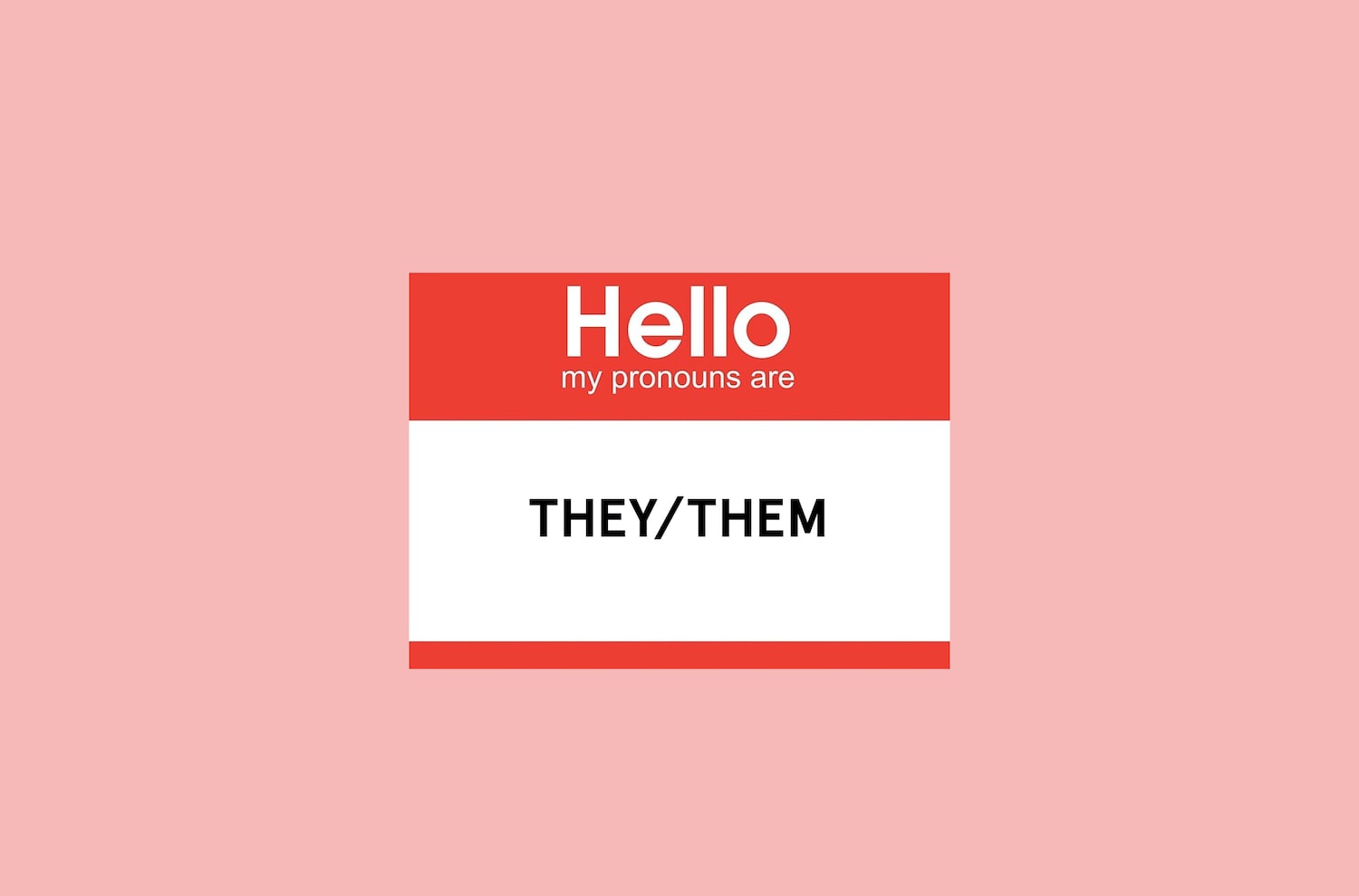Trans enough

Content note: This post addresses microaggressions against transgender and non-binary people, such as misgendering and expectations about gender presentation. It also contains mentions of mental illness.
You’ll see my pronouns everywhere when you walk into my house.
Pins adorning a cork board, necklaces hanging from a stand, stickers on water bottles, buttons in a small tray on the table by the door. Each says the same thing: They/Them.
I purchased many of these items in private fits of rage, seemingly small moments bubbling over a cauldron’s edge. Getting “ma’am”ed in a coffee shop, being misgendered by people who never even knew me when I used a different set of pronouns, the expectation of answering one question too many about how I can be femme and non-binary at the same time.
My necklaces and pins were armor, small pieces of metal against my neck and chest a weighted reminder that I am valid. I put them on every time I stepped out of the door or had a Zoom meeting, a ritual for protection.
Now, however, a year and some change after coming out as agender, I find myself reaching for my pronoun pins less and less and calling up my own voice more and more.
----------------------------------------------------------
Despite being someone who makes their opinions known about pretty much everything, when I first came out, I found it extraordinarily difficult to speak up and correct anyone who used the wrong pronouns for me.
At this point, you might be thinking, “But, Sarah, this is part of your humanity.” And you’d be right. But it’s not that simple. Thanks to a fun combination of complex trauma and a little collection of anxiety disorders, I have trouble affirming that I’m not “too much,” even in the context of something so deeply personal yet so simple as being addressed properly.
Take that complex trauma and add a dash of cultural and societal expectations about how trans and non-binary people are “supposed” to look or act, and I was left with a pretty dark outlook. I’m femme, and most people read me as a woman because they were taught (as we all are) that gender identity and gender expression have to “match”—for example, that women should express their gender femininely. The problem is far too many people don’t put in the work to divest gender from gender expression in their own mind. Yes, I’m femme, but I’m also agender, and those two parts of me are not incompatible.
----------------------------------------------------------
I often say that to me, being agender means being gloriously genderless. When I started to question my gender, I realized I couldn’t identify one single thing that made me a woman, or a man, or someone who is genderfluid. I simply feel nothing at all when it comes to gender.
After I came out, I felt lighter, free, and more like myself than ever before, but I was also faced with the reality of being misgendered every single time I was in public, and often by people close to me, too. Internally, I was at peace, assured in who I was, but whenever I was blatantly confronted with the fact that our gendered culture doesn’t welcome me, I would retreat.
Slowly, though, I began to change rather than waiting for the world and people around me to do so. First, I started using not only agender and non-binary to describe me, but transgender, too. Not all non-binary people also consider themselves transgender, but many do. In my experience, it sometimes takes a little while—partially due to these cultural expectations around transness—but it’s been a crucial piece of loving and accepting the whole of myself.
I’m also practicing correcting people when they use the wrong pronouns, no matter how many times it takes. Before, I felt shame, not on the other person’s behalf, but on mine: it was just a mistake, I shouldn’t make them feel bad, right? Wrong. I have nothing to be embarrassed about. I know who I am and how I deserve to be treated. I won’t make myself small to benefit other people’s comfort any longer.
(I also want to note here that not all trans and non-binary people are able to do this. My privilege as a white, middle-class person more safely positions me to correct people and be loud about being trans in public. There is no value or worth assigned to my change in attitude; my story isn’t any more important than someone who is unable to speak up, no matter the reason.)
----------------------------------------------------------
My (lack of) gender probably doesn’t look the way people expect, but that’s the beauty of it. I am constantly growing into myself and learning more about who I am, and through it all, I am trans enough.
I still wear my pronoun pin when I’m going to an event with a lot of people, like a munch or a party (outside! #wearamask) or when I’m volunteering somewhere new. The rest of the time, though, you can hear me loudly introducing myself—and speaking up if someone doesn’t address me the way they should.
“Hi, I’m Sarah, and I use they/them pronouns.”
Sarah Brynn Holliday (they/them) is a queer, non-binary femme living in Salem, Massachussetts. Sarah has been writing and educating about sex toys, queerness, gender, feminism, and healing and pleasure after trauma since 2015. You can find them at formidablefemme.com and on Twitter @SarahBHoll.